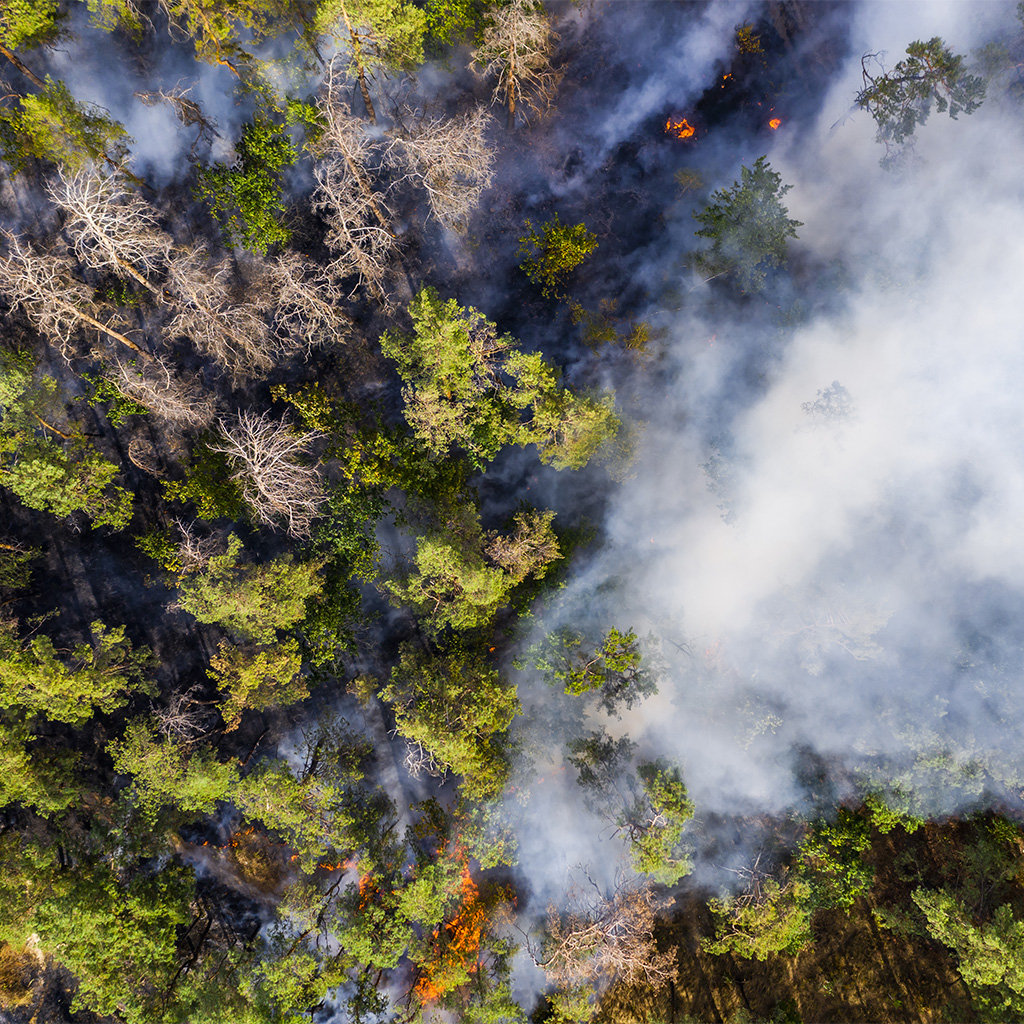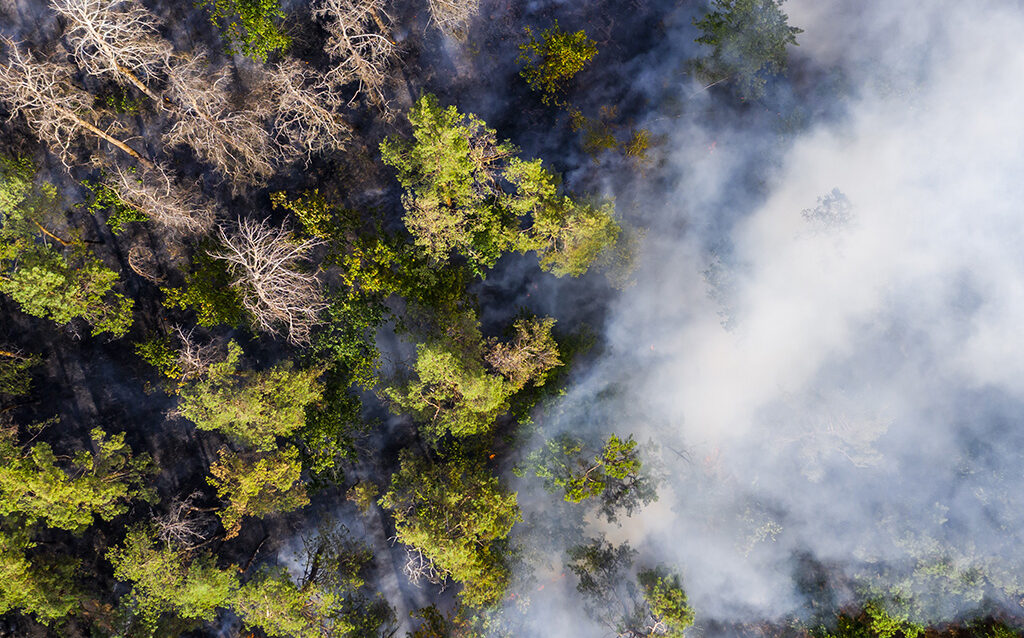The Silvanus project – a new European Green Deal project created for forest fire management, forest resilience and climate change.
Project SILVANUS – funded by the EU Horizon 2020 Green Deal programme and coordinated by the University of Naples Pegaso. The SILVANUS project includes 49 partners from the EU (incl. 3MON), Brazil, Indonesia and Australia with a budget of 23 million euros for a period of 42 months.
Project SILVANUS brings together a large consortium of interdisciplinary experts from four continents to fight forest fires and improve the resilience of forests to climate change.
The main objective of the project is to develop climate-resilient forest management to prevent and fight forest fires. SILVANUS relies on experts in environmental, technical and social science disciplines to support regional and national organisations responsible for forest fire management in their countries. SILVANUS scientists and engineers will assist civil protection organisations with effective monitoring of forest resources, biodiversity assessments, the development of more accurate fire danger indicators and the promotion of safety rules for people affected by wildfires through awareness-raising campaigns.
In these times of climate crisis, forest fires are becoming more frequent and more dangerous. The SILVANUS project aims to offer new technological solutions to improve preparedness and prevention against the occurrence of natural fires. This will be achieved by a new information processing system that can analyse, for example, climate models, weather and Earth observation tools, allowing the creation of an intelligent fire model in the future.
These models will be complemented with data from field sensors, video camera footage and multispectral imagery to develop an advanced detection and response tool. The SILVANUS project will also showcase sensor technology that uses wireless communication with the coordination of unmanned aerial vehicles and automated ground robots for better coordination of forces and assets.

What makes SILVANUS innovative?
SILVANUS kicks off a large-scale stakeholder engagement programme in forest areas to evaluate fire hazard indicators, to develop new methods for training firefighters using virtual reality and augmented reality to simulate real environments and rescue situations. Awareness campaigns will include the implementation of a mobile application for communication with citizens, together with automated notifications on safety procedures.
An important factor of the project is to take into account the experience and expertise of firefighters and local residents who face the danger of devastating forest fires every year.
Pilot implementation and long-term impacts
The SILVANUS innovations will be systematically deployed and presented in the regions of eight EU Member States (France, Italy, Slovakia, Greece, Czech Republic, Portugal, Croatia and Romania). Additional presentations will also be made in Indonesia, Brazil and Australia.
To ensure the long-term impact of the SILVANUS project results, the project will include recommendations for forest management, recommendations for land rehabilitation strategies and plans for natural resource restoration.
Throughout the duration of the SILVANUS activities and beyond, the project will focus on all three aspects of fire suppression: prevention and preparedness, detection and response, recovery and adaptation.
The SILVANUS project will start with a hybrid meeting in Naples, Italy on 13 and 14 December 2021.
Partners
Università Telematica Pegaso (Pegaso Telematic University), Zanasi&Partners, INTRASOFT International SA, Thales, Fincons Spa, Atos IT Solutions and Services Iberia SL, Dell Technologies, Software Imagination & Vision SRL, CNET Centre for New Energy Technologies SA, AdP Valor – Serviços Ambientais, S.A., Terraprima – Serviços Ambientais Sociedade Unipessoal LDA, 3MON, s.r.o., Catalink Limited, Synthesis Center for Research and Education Limited, Expert.AI SpA, ITTI Sp. z o.o., Venaka Treleaf GbR, Massive Dynamic Sweden AB, Fondazione Centro Euro-Mediterraneo sui Cambiamenti Climatici (Euro-Mediterranean Center on Climate Change), EXUS Software Monoprosopi Etairia Periorismenis Evthinis, RiniGARD d.o.o., Micro Digital d.o.o., Politechnika Warszawska (Warsaw University of Technology), Högskolan I Borås (University of Borås), Geoponiko Panepistimio Athinon (Agricultural University of Athens), Centre for Research and Technology Hellas (CERTH) – Information Technologies Institute, Panepistimio Thessalias (University of Thessaly), Associação do Instituto Superior Técnico Para a Investigação e Desenvolvimento (IST-ID), Veleučilište Velika Gorica (University of Applied Sciences Velika Gorica), Ústav Informatiky Slovenska Akademia VIED (Insitute of Informatics – Slovak Academy of Sciences), Pompiers de l’urgence Internationale (PUI France), The Main School of Fire Service Poland, Agenzia regionale Strategica per lo Sviluppo Ecosostenibile del Territorio (Regional Strategic Agency for the Eco-sustainable Development of the Territory), LETS Italia SRLS, Parco Naturale Regionale di Tepilora (Regional Natural Park of Tepilora), Fundația Pentru SMURD (SMURD Foundation), Asociația Forestierilor din România (Romainan Forestry Association – ASFOR), Kentro Meleton Asfaleias (Center for Security Studies – KEMEA), Elliniki Omada Diasosis Somateio (Hellenic Rescue Team – HRT), Aristotelio Panepistimio Thessalonikis (Aristotle University of Thessaloniki), Ospedale Israelitico (Jewish Hospital Rome), Region of Sterea Ellada (Central Greece), Hasicsky zachranny sbor Moravskoslezskeho kraje (Fire Rescue Brigade of Moravian-Silesian Region), Hrvatska vatrogasna zajednica (Croatian Firefighting Community), Technická Univerzita vo Zvolene (Technical University in Zvolen), Občianske Združenie Plameň Badín (Plamen), Yayasan AMIKOM Yogyakarta (University of AMIKOM Yogyakarta), Commonwealth Scientific and Industrial Research Organisation, Universidade Federal do Rio de Janeiro (Federal University of Rio de Janeiro)





